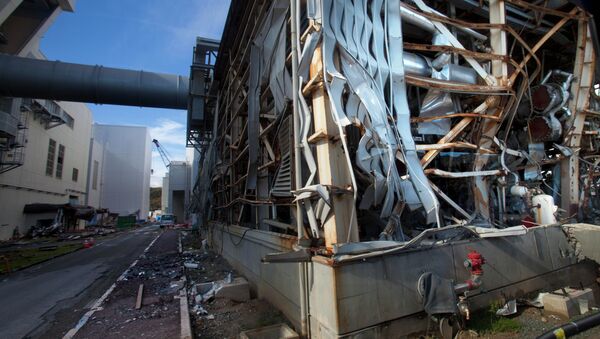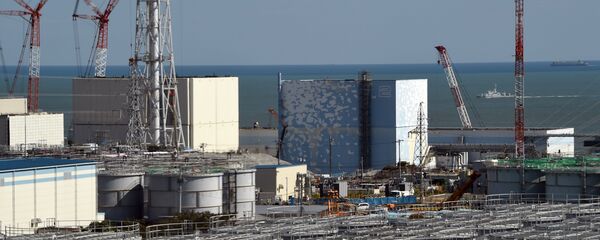Fukushima is a global environmental disaster, and not only in terms of its unprecedented scale as millions of people are believed to have been radioactively contaminated.
Fukushima 5yrs on: Impacts of disaster will last for centuries — documentary director to RT https://t.co/Esc0dDtKob pic.twitter.com/yO5ARIWtmO
— RT (@RT_com) March 12, 2016
Five years later, Fukushima’s ongoing problems include, three destroyed reactor cores with some eleven-thousand extremely radioactive spent nuclear-fuel rods still in place, and, a continuous leak of poisonous radioactive water that continues to leach into the surrounding earth and nearby ocean.
For 60 months 300 tons a day of contaminated water has drained from Fukushima. https://t.co/0noH6ayLrJ pic.twitter.com/orqEurD1Bx
— CounterPunch (@NatCounterPunch) March 11, 2016
“The fact is, that we don’t even know where the fuel has gone,” Moglen said. “It means this fuel is still coming into contact with a tremendous amount of water that is still flowing through the side [of the broken reactor] and into the ocean. And spent irradiated nuclear fuel rods from the reactors, those have not been removed either.”
The current status of the meltdowns and what’s going on inside of the three dead nuclear reactors remains a mystery, Moglen said.
The government and industry in Japan appear to go hand-in-pocket, giving every impression of caring more about their public image and brand than about the cleanup of the disaster site.
“One of the stunning things about the outcomes of Fukushima is that the nuclear regulatory commission and government officials in this country spent a lot of time downplaying the nature of the disaster rather than addressing the similar problems we have with our reactors in this country that led to Fukushima disaster.”
“We need to recognize that this is a failed technology of the last century; we need to put it behind us. Having said that I think that another major lesson of Fukushima is that the nuclear industry far too often in various countries is not adequately supervised by independent safety agencies.”
A stark look at what's happened in the 5 years since the Fukushima nuclear disaster:https://t.co/UTH9m2yf4G
— AJ+ (@ajplus) March 11, 2016
“We are in this country in a very scary situation,” Moglen warned, explaining that the US has some 99 reactors that are over 30 years old. As they reach the end of their usable lifetime, the risk of mechanical or system failure becomes more acute. But power and manufacturing companies “want to keep running them because they are making profits.”
It cannot be ruled out that a disaster on a similar scale to the ongoing Fukushima radioactive leaks will not occur in the US, Moglen stated.






